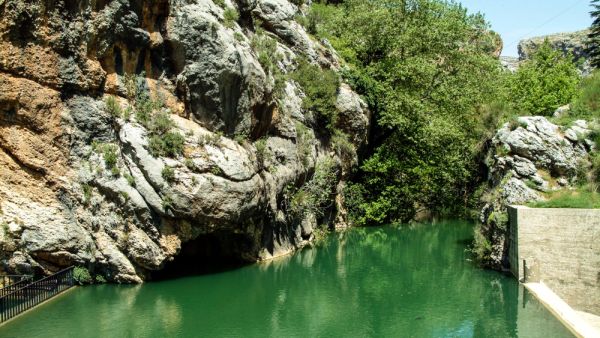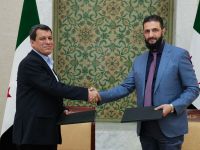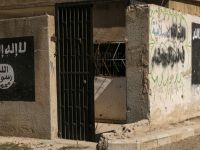Cleaning the Litani River is a “national mission,” Prime Minister Saad Hariri said Tuesday after results from a project combating industrial pollution were presented by the Industry Ministry.
“This project is not for the Bekaa but for all of Lebanon,” Hariri said, according to a statement from his office.
Hariri optimistically added that “the Litani River Basin will become clean ... [providing] that we all work together,” but admitted that currently the work is “very slow.”
The premier’s comments came after the Industry Ministry presented results of a plan to remove industrial pollution from Litani River as part of Industry Minister Wael Abu Faour’s strategy to crack down on offending industries along the river and its tributaries.
{"preview_thumbnail":"https://cdn.flowplayer.com/6684a05f-6468-4ecd-87d5-a748773282a3/i/v-i-5…","video_id":"5372d686-39ea-4a16-92aa-d78eaf78fc54","player_id":"8ca46225-42a2-4245-9c20-7850ae937431","provider":"flowplayer","video":"US, UK, France May be Complicit in War Crimes in Yemen"}
The Litani, Lebanon’s longest river, has notoriously high levels of pollution that have been linked to the flow of untreated industrial waste – including agricultural, solid and slaughterhouse waste – into its waters.
Last month, Abu Faour closed over a dozen noncompliant factories in the Bekaa Valley for ignoring deadlines to install facilities to prevent pollution.
On Wednesday, the ministry announced that a dairy and cheese factory in Zahle belonging to George Mahrouk has been reopened after the owner proved that he had installed liquid waste treatment capabilities.
Also on Wednesday, the municipality of Barr Elias in the Bekaa Valley sent a memo to Energy Minister Nada Boustani asking her ministry to intervene to prevent new sewage networks in the area that are not connected to treatment plants.
“We have to implement the steps we have agreed on in Cabinet and the committees that we held, both in Parliament and Cabinet,” Hariri said Tuesday.
The prime minister pledged to hold a meeting every three or six months to follow up on the project. Abu Faour asserted that his ministry would achieve “zero industrial pollution” by the end of the summer.
This article has been adapted from its original source.








